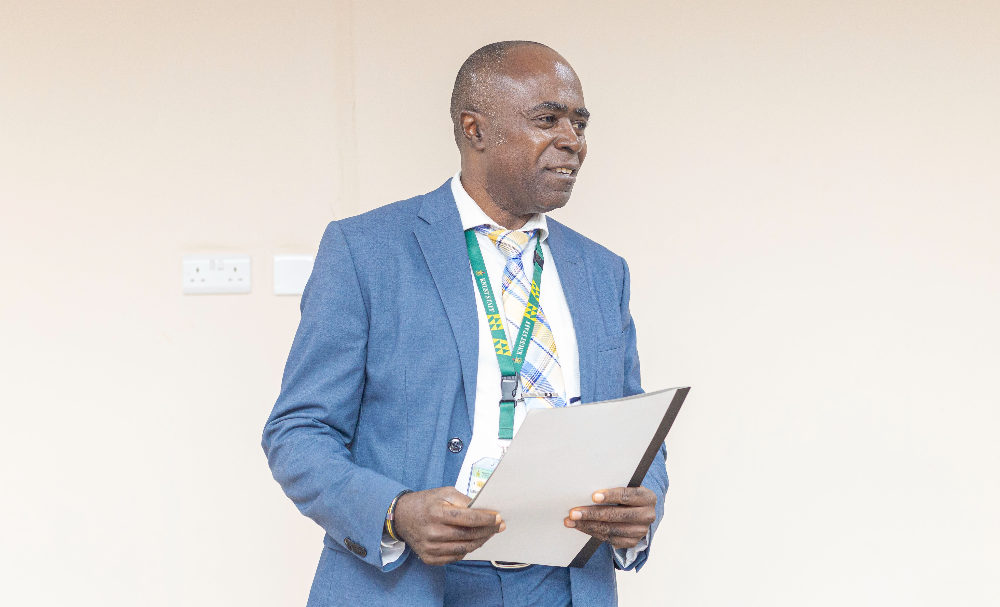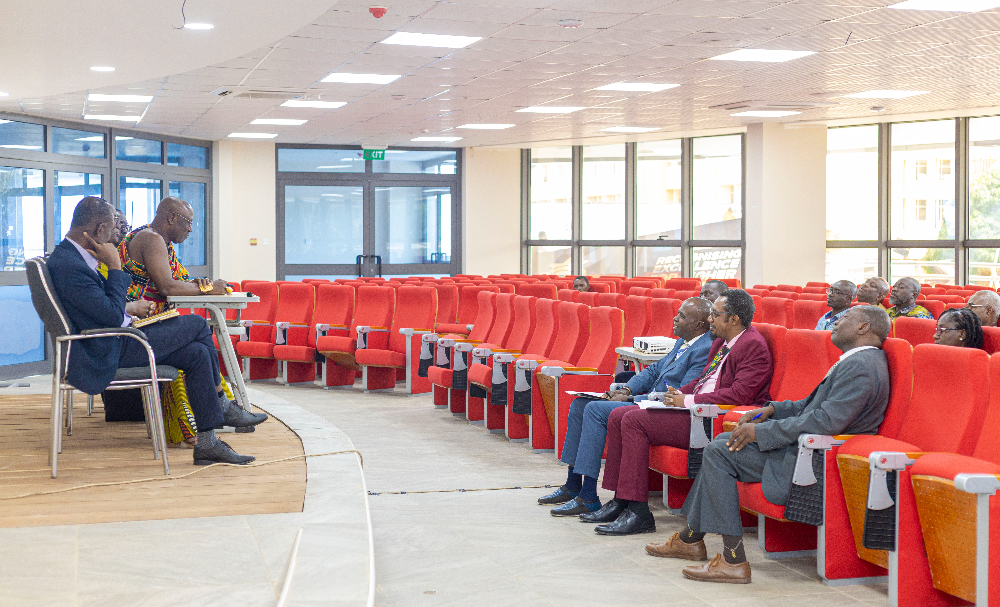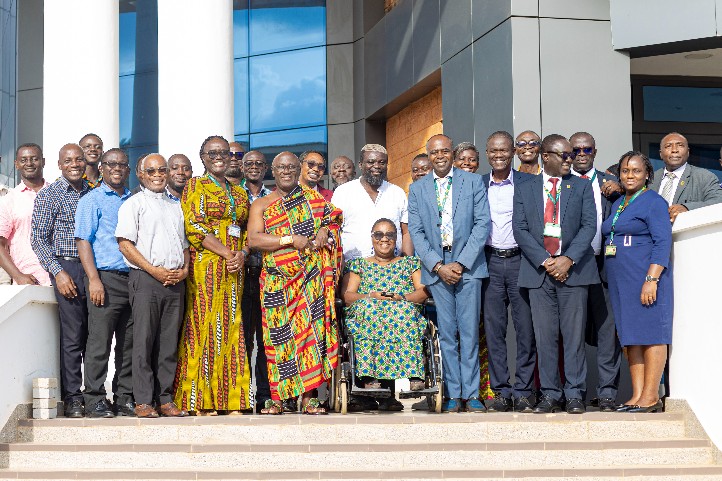Chair of the Governing Council of the Kwame Nkrumah University of Science and Technology (KNUST), Kumasi, Akyamfour Asafo Boakye Agyemang-Bonsu, has charged the College of Art and Built Environment (CABE) to take a leading role in integrating blockchain technology, artificial intelligence, and spatial planning innovations into national development, particularly in the area of land administration and sustainable settlement planning.
The Council Chair made these remarks during a working visit to the College, where he held an interactive session with the College Board.
He was accompanied by Vice-Chancellor, Professor Mrs. Rita Akosua Dickson, Pro Vice-Chancellor, Professor David Asamoah, Registrar, Mr. Andrews Kwasi Boateng, and Finance Officer, Dr. Charles Nsiah.

Speaking on behalf of the Provost, Prof. Christian Koranteng, welcomed the Council Chair and provided an overview of the College’s research areas and strategic focus.
Drawing inspiration from his self-developed Dinpa Integrated Land Management System, which uses cadastral coordinate systems for managing land records, Akyamfour encouraged the College to partner with relevant agencies to streamline land administration processes, especially in the Ashanti Region.
“That’s an interesting area we can work on together,” he said, referencing the potential of collaborative efforts in digital land registry and spatial planning.
He further challenged the College to upgrade its technological competence, especially in the wake of widespread artificial intelligence adoption.
“We don’t need to restrain any student from using AI,” he noted. “But how competent are we as a research community. How can the blind lead the blind? That means we need to upgrade.”
The Council Chair also highlighted energy efficiency, water resource management, and climate-responsive design as critical areas where the College could offer research leadership in support of Ghana’s sustainable development agenda.

He emphasized the need for green building research, minimal design approaches, and the integration of resource conservation into architecture, planning, and construction education.
“If we don’t have proper spatial planning, land use becomes a national problem,” Akyamfour warned, calling for a rethinking of design and planning frameworks.
He urged the College to develop a strategic plan to guide its work over the next decade:
“You have a major role to play in how we transform this country. Leadership has a great role to play here. How far do we want to go in the next 10 years?”
Stressing the importance of aligning academic goals with national development priorities, he said:
“We should be able to tell government what’s needed. Budgeting becomes important because we cannot get there if staffing isn’t factored in.”
The Acting Provost of the College acknowledged the Council Chair’s insights and vision:
“We’ve been challenged to move beyond our current boundaries,” he said.

















